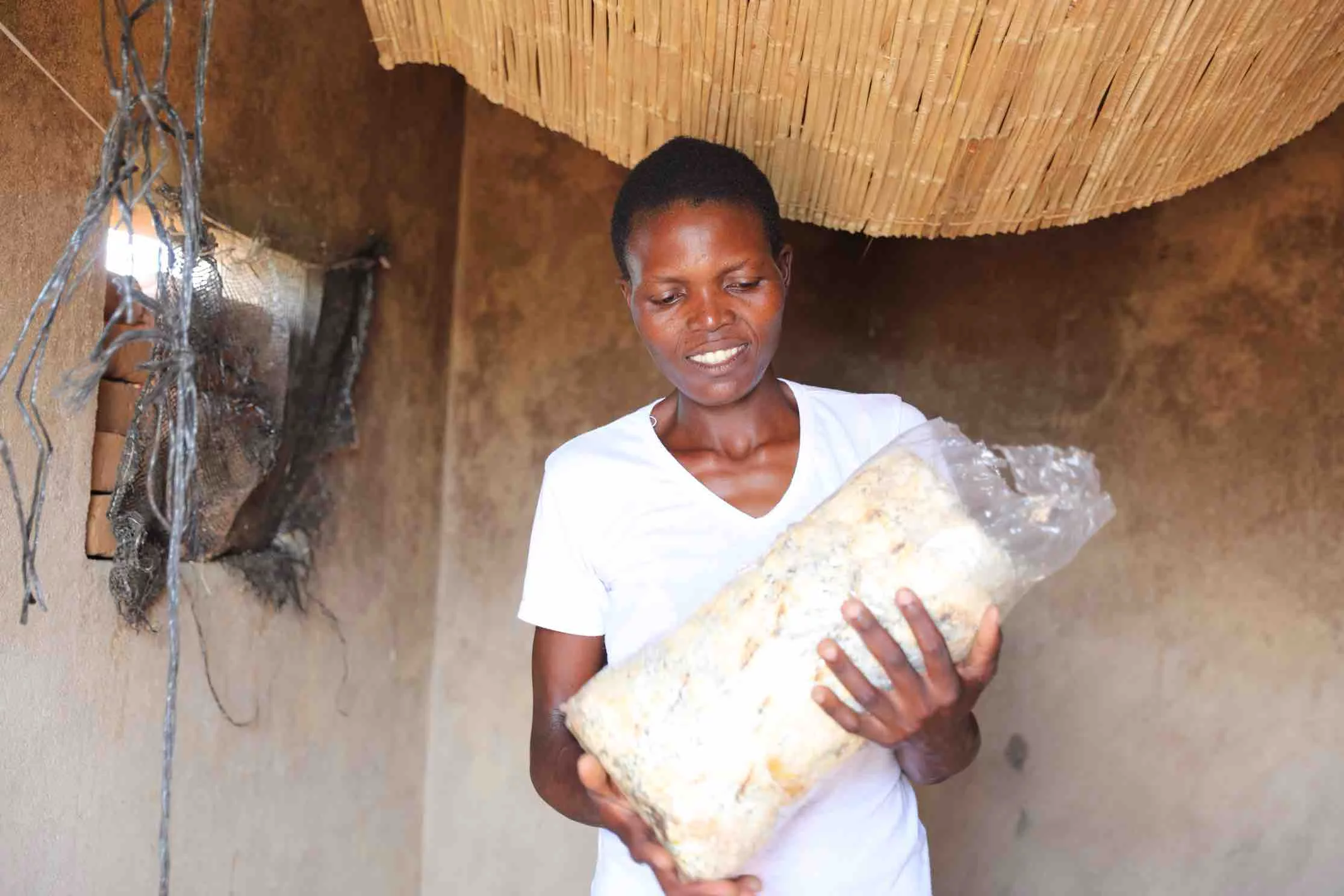|
Getting your Trinity Audio player ready...
|
In the heart of Zimbabwe’s tobacco belt, a quiet transformation is taking root. In small rural communities in Hurungwe District, women are harnessing the power of mushrooms to grow not just food—but dignity, income, and resilience. Supported by the Zimbabwe Resilience Building Fund (ZRBF) with financial assistance from the European Union and the Embassy of Ireland, the United Nations Development Programme (UNDP) helps to empower women to become agents of change through sustainable mushroom farming.
At the forefront of this initiative is Shumirayi Chindori, a community champion from Mushumi Ward who was trained in mushroom production and certified as a local trainer. To date, she has trained 56 women across 7 wards, equipping them with the skills and confidence to build a better future.
“We never imagined mushrooms could change our lives this way,” said Shumirayi. “We were used to farming the hard way—ploughing, weeding, waiting for rains. Now, we are farming smart. Mushrooms don’t need much land or water.”
These women, many of whom had previously relied on seasonal cash crops or household support, are now producing up to 40 kilograms of oyster mushrooms per cycle. The harvests are sold to local markets, schools, and restaurants, with profits used to pay school fees, purchase groceries, and start savings groups.
“I used to rely on my husband for everything,” said Mrs. Chabayanzara, a mother of six. “Now, I contribute equally at home. I walk into the shop and buy school uniforms with my own money—and that means a lot to me.”
Despite challenges such as water shortages and scarcity of traditional substrates like wheat straw, the women have adapted by using alternative materials like banana leaves and cotton waste—an innovation taught through UNDP’s training programmes in partnership with local agricultural officers.
Notably, the programme is shifting traditional gender dynamics, as men have begun to actively support their wives in mushroom production.
“At first, we thought this was women’s work,” said Noel Chabayanzara, a trained mushroom farmer. “But when we saw the income and how households were changing, we had to join in.”
The initiative has also inspired long-term aspirations. Many participants are saving to purchase livestock or expand into mushroom processing to boost income and employment opportunities for youth in their communities.
Dhumisile Msimanga, Programme Manager at the Embassy of Ireland, witnessed the impact first-hand during a recent visit. “What struck me most was the pride, the teamwork, and how women are leading while men are supporting. That’s true community resilience,” she said.
UNDP Project Manager for ZRBF, Shupikayi Zimuto, emphasized the broader impact. “Mushroom farming is more than an alternative livelihood—it’s a strategic investment in community resilience. We are seeing households that once struggled now planning their futures.”
With continued support, these women are not just cultivating mushrooms—they are cultivating hope.
SOURCE: UNDP ZIMBABWE






